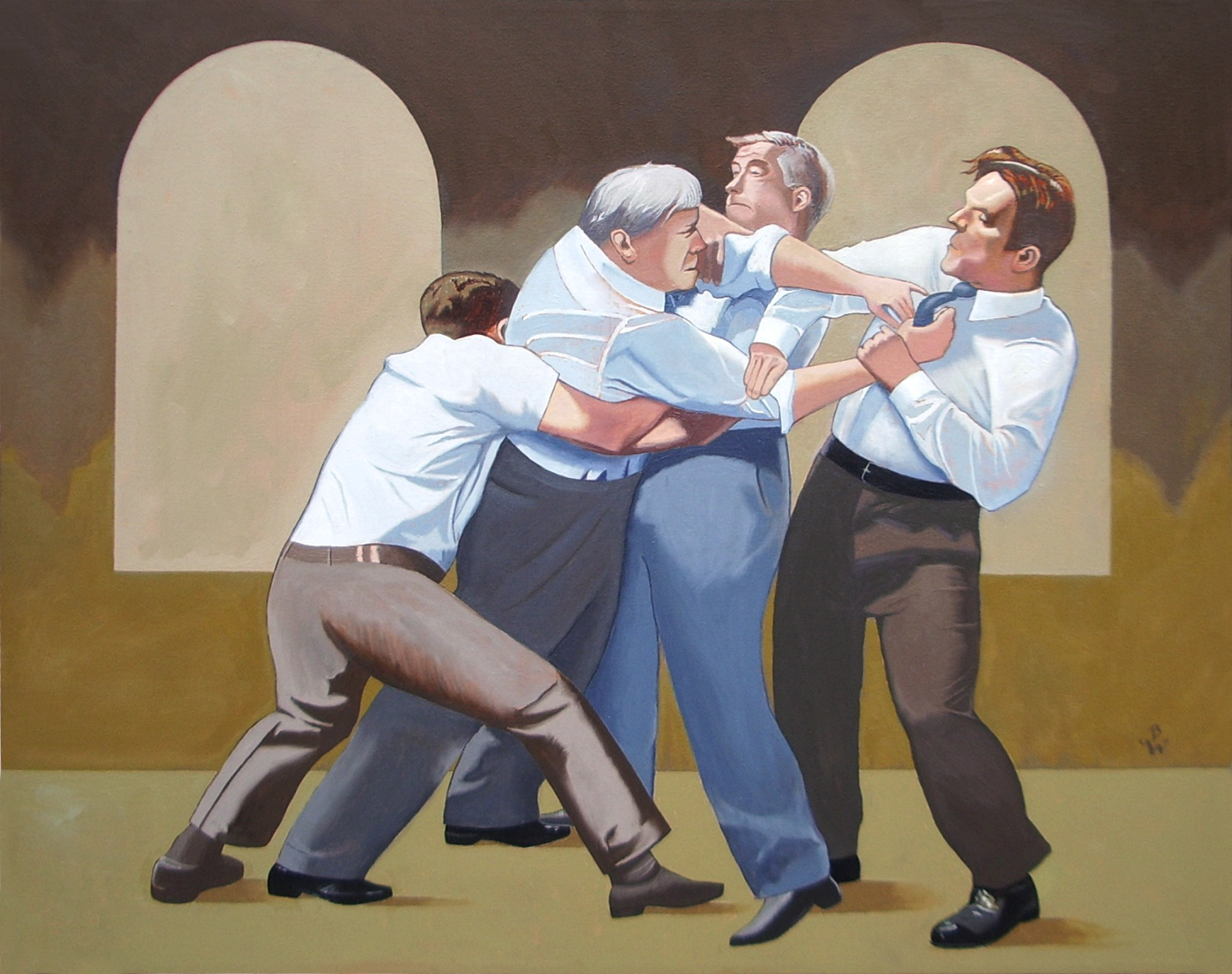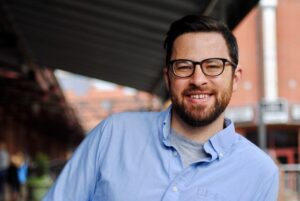Facilitating tough conversations
App developers want to encourage productive communications between those with opposing viewpoints

In a year that began with a pandemic and will end with a presidential election, there has rarely been a greater period of – or opportunity for – political divisiveness in the modern age.
Marcus Mann, assistant professor of sociology, refers to the country’s present condition as “the golden age of political polarization,” abetted in no small part by the technology that is accessible to all.
“The advent of social media has just opened up so much opportunity to study these things,” said Mann, whose research focuses on political polarization. “There’s a lot of data available to get observational information that shows us exactly the type of information people are consuming and how that might lead to certain kinds of political beliefs.”
With a political climate stoked hourly by any number of outlets providing information – or disinformation – overload, Mann is involved in a multi-disciplinary project that seeks to bring clarity to discussions between opposing parties.
Mann is collaborating with Sorin Matei, associate dean of research and professor of communication in the College of Liberal Arts, and Purdue electrical and computer engineering faculty members Alexander Quinn and Stanislaw Zak. They are developing an application to encourage meaningful interactions between folks with differing viewpoints, or, as Quinn put it, “Helping people craft their message so they’re not turning people off.”
And Mann and his colleagues are working on the project with eyes wide open regarding the tenor of most political discussions in the early 21st century.

“This project is based on the common wisdom that political polarization is worsening, that political discourse between partisans on either side is suffering,” said Mann, who has a bachelor’s degree in English, master’s degrees in religious studies and sociology, and a doctorate in sociology.
“And another big assumption behind something like this is that regular folks do want to improve discourse and are interested in having their ideas heard by the other side; people are interested in having good-faith conversations and making their messages better received by people on the other side.”
Mann said that in its completed form, the app “would work like Grammarly,” a digital writing tool that checks spelling and grammar from text via artificial intelligence.
“A Grammarly for political conversations. I thought that was interesting,” he said, adding Quinn and Zak wanted his participation in the project given his research background and his ability to provide a social scientific component.
“Sorin introduced us to [Mann], which was transformational,” said Quinn, whose academic interests include human-computer interaction and crowd sourcing. “[Zak] works with mathematical models that have nothing to do with human beings, and I do human-computer interaction stuff, but I don’t have any of the sociology background that Marcus has or the communication background that Sorin has. I consider myself the instigator and the implementer here. Marcus is a real fount of knowledge and ideas and thoughts about this, which has been fantastic."
It’s clear what Mann hopes the application will — and won’t — do.
“When people talk about civil discourse, we want to be cognizant and reflective of the fact that a lot of times that can be weaponized to silence people who don’t have a lot of power,” Mann said. “What we’re not trying to do is create a tool that polices others’ emotions or values in rational discourse over other kinds of discourse out there.”
“Trust, learning, problem solving – that’s the bedrock of what we’re doing,” Quinn added. “If we can’t trust, we can’t learn from each other. People will come to different conclusions, but not because they hate freedom, or liberty, or safety, or anything like that. It's because their priorities are different from ours. If we’re stuck in echo chambers or simply alienating the other side, true information doesn’t get propagated.”
Mann seems well-suited for the project, as his studies at Duke University examined organized atheism and how political knowledge travels from place to place.
“That’s how I got interested in this – this idea of all these knowledge authorities competing more now than ever before because of social media, and all the implications of that and how that shapes political beliefs for those who are trying to make big decisions and get good information,” he said.
By spring semester, Zak had created a mathematical model and an intern engaged by Quinn constructed a prototype to help establish the tool’s design elements. Mann was working on efforts to determine the effects such an “intervention” could have.
“The goal … is certainly to build something that helps people talk and have healthy discourse where they can share disparate ideas and where the evaluation of evidence becomes paramount and where good ideas are arrived at more often than in discourse not guided by a tool like this,” Mann said.